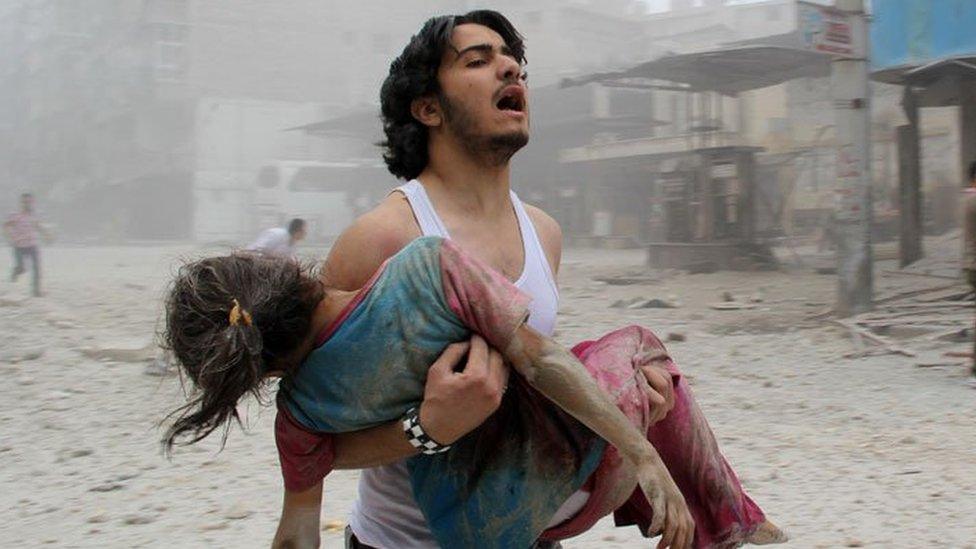Migrant crisis: Dutch alarm over child brides from Syria
- Published
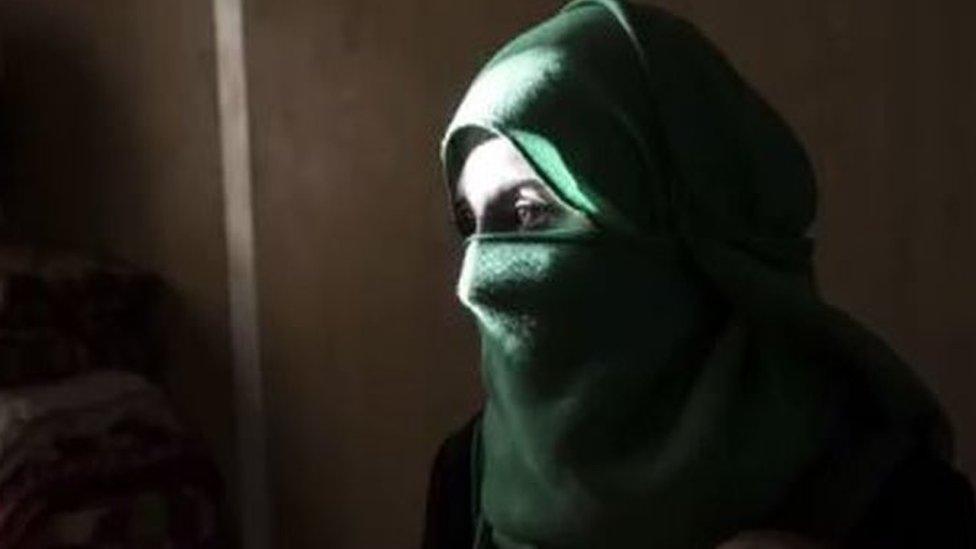
Child marriage is outlawed by several international agreements
A 14-year-old girl has gone missing from a Dutch asylum centre. Police say Fatema Alkasem was nine months pregnant and may be in need of medical care.
She is also thought to be a "child bride", and her case has highlighted the problem that the Netherlands faces in providing asylum for girls who married in Syria but are below the Dutch age of consent.
The government in The Hague is rushing to close a loophole in the asylum law which has so far allowed child brides to be reunited with their husbands in the Netherlands.
The practice has inflamed debate about how the Netherlands is responding to the refugee crisis, with some arguing it is condoning paedophilia.
'Foster care'
As many as 20 girls between the ages of 13 and 15 have been given legal permission to join their older partners at Dutch asylum centres, according to regional news channel RTV-Noord. The figures were reportedly obtained from a leaked immigration service document.
"A 12-year-old girl with a 40-year-old-man - that is not a marriage, that is abuse", says politician Attje Kuiken, whose Labour party is a partner in the ruling coalition.
"We're talking about really young children, girls 12, 13 years old. I want to protect these children. The government should take them into foster care and protect them, because before the new law comes into force, they can still be subject to abuse."
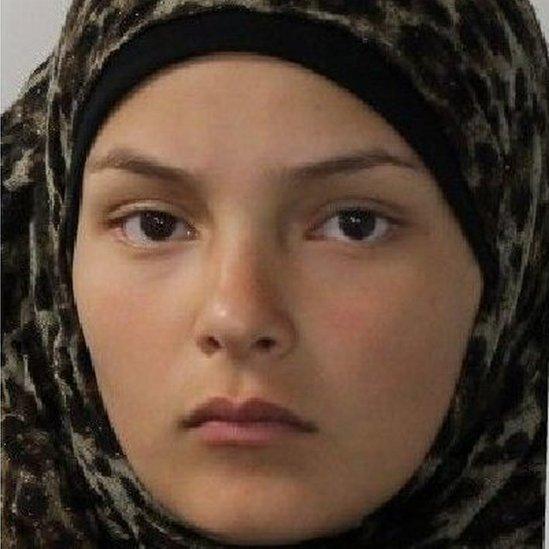
Police have issued an appeal for the whereabouts of Fatema Alkasem
The age of sexual consent in the Netherlands is 16 but migration minister Klaas Dijkhoff has told the BBC that the country currently recognises marriages involving young teenagers, as long as they are officially registered in their country of origin.
"At the moment we do have a problem with the bracket between 15 and 18. We want to be more strict, (and in future we will) not recognise the relationship..."
The amendment means that family reunification applications will only recognise marriages if both partners are over the age of 18.
"So if you're a man with an underage wife," Mr Dijkhoff warns, "you won't make it in time to bring over your underage wife."
Political repercussions
The new rules are due to come into force in December.
In the meantime, there are concerns for the welfare of married Syrian teenagers who are already living the Netherlands, like 14-year-old Fatema. She disappeared from the country's main asylum centre in Ter Apel two months ago.
A police spokeswoman told the BBC they feared she had been taken overseas. She has been placed on their list of missing children.
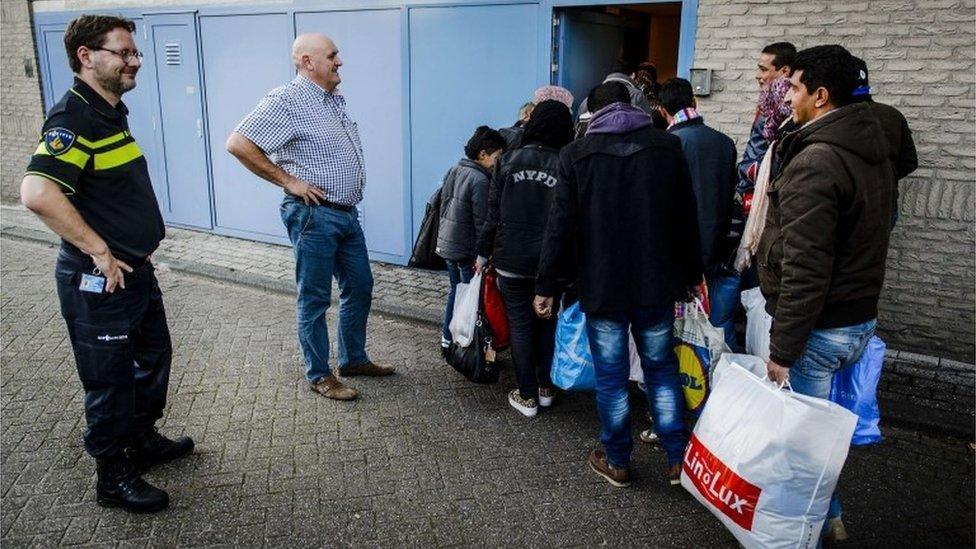
The Dutch government says it has vastly under-estimated the cost of looking after new arrivals
The failure to pre-empt the rising tide of refugees is having political repercussions.
More than 36,000 people entered the Netherlands this year. Former prisons, empty government offices and sports halls are being hastily modified to accommodate the surge in numbers.
Earlier this month, Finance Minister Jeroen Dijsselbloem announced that the treasury's original predictions of €300m (£220m) to cover the cost of the new arrivals in 2015 was a vast underestimate.
They are now looking at a bill of approximately €1bn.
The anti-immigration Freedom Party (PVV) is enjoying its highest ever poll rating. The Freedom Party's popularity is being partly attributed to Dutch concern about the continent's inability to manage the flow of new arrivals.

Syrian "child brides" and international law
"Alarming increase", external in number of child marriages within Syrian refugee communities in Jordan, Iraq and Lebanon, says Save the Children
It is argued that it is to protect the girls from sexual assault and other hardship
It is also seen as safeguarding family honour
It reduces economic burden on refugee families
But child marriage threatens a girl's physical and mental health
It is outlawed by the Convention on the Elimination of All Forms of Discrimination against Women, external
The right to free and full consent from both parties is enshrined in the Universal Declaration of Human Rights (article 16), external

I met two Syrian friends from Aleppo, Majd and Samo. They are worried that the child brides issue may be further tainting the Dutch view of Syrian people and their culture.
"The refugees here have a culture shock right now. We bring with us our beliefs, our traditions and they're not easy to break," says Majd.
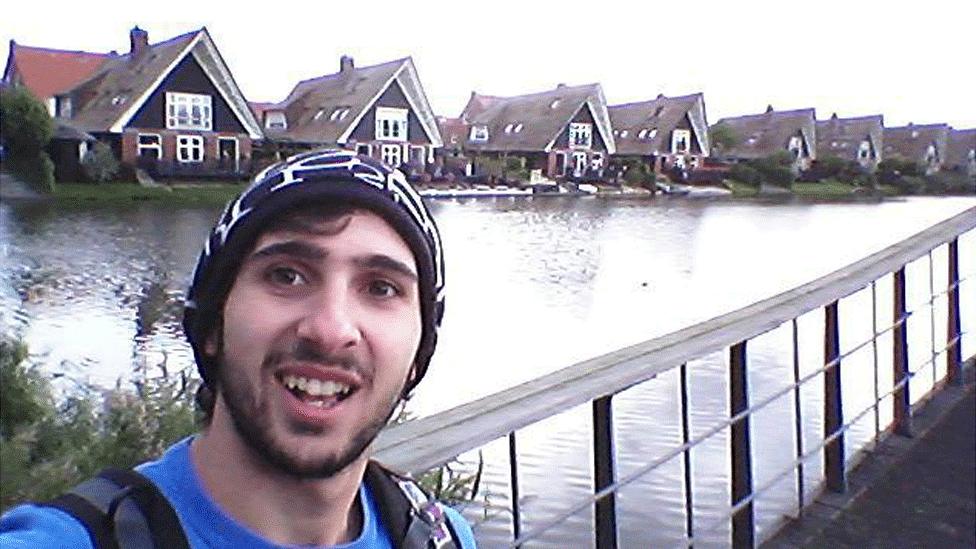
Majd from Aleppo believes Syrians arriving in the Netherlands have to take account of Dutch laws
"Our problem is that Dutch people can't see the difference between Syrians but it's our responsibility to deal with these new laws."
Samo remembers meeting a young girl who was married at a refugee camp in Den Helder.
"I'm a refugee but I was working there in food distribution. I was very moved. I thought the guy was her little brother. When she said, 'this is my son', I was shocked. She was 14 years old. She accepted her fate, but it's wrong."
Majd has been informally adopted by a Dutch family who invite him round for home-cooked meals and help with his language skills. Many Dutch people do support those who have fled the conflict zones. But there are complex challenges in accommodating them. And as the reaction to the reports on child brides shows, cultural integration can be complicated.
- Published20 August 2014
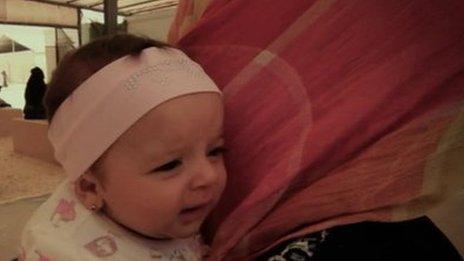
- Published4 October 2011
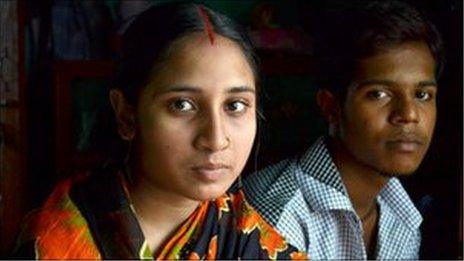
- Published14 October 2015
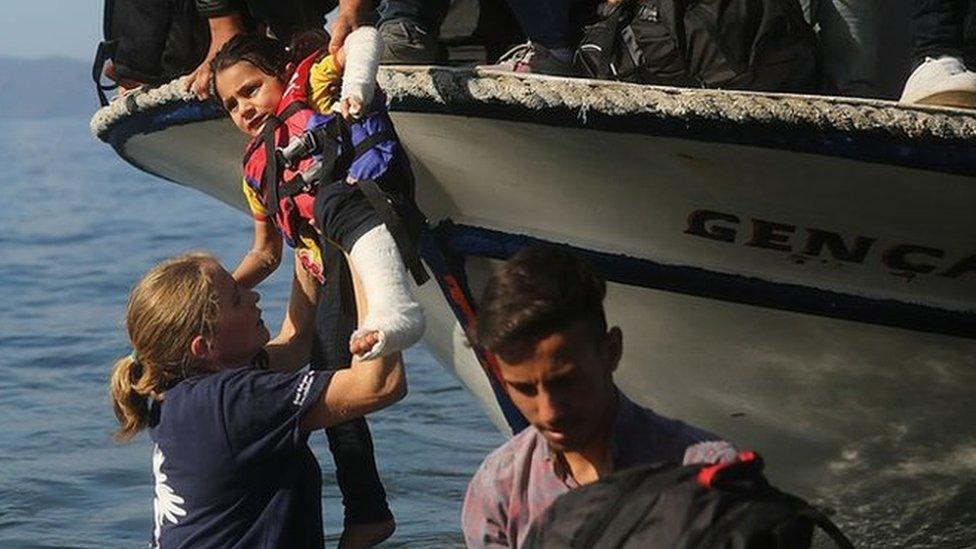
- Published11 March 2016
